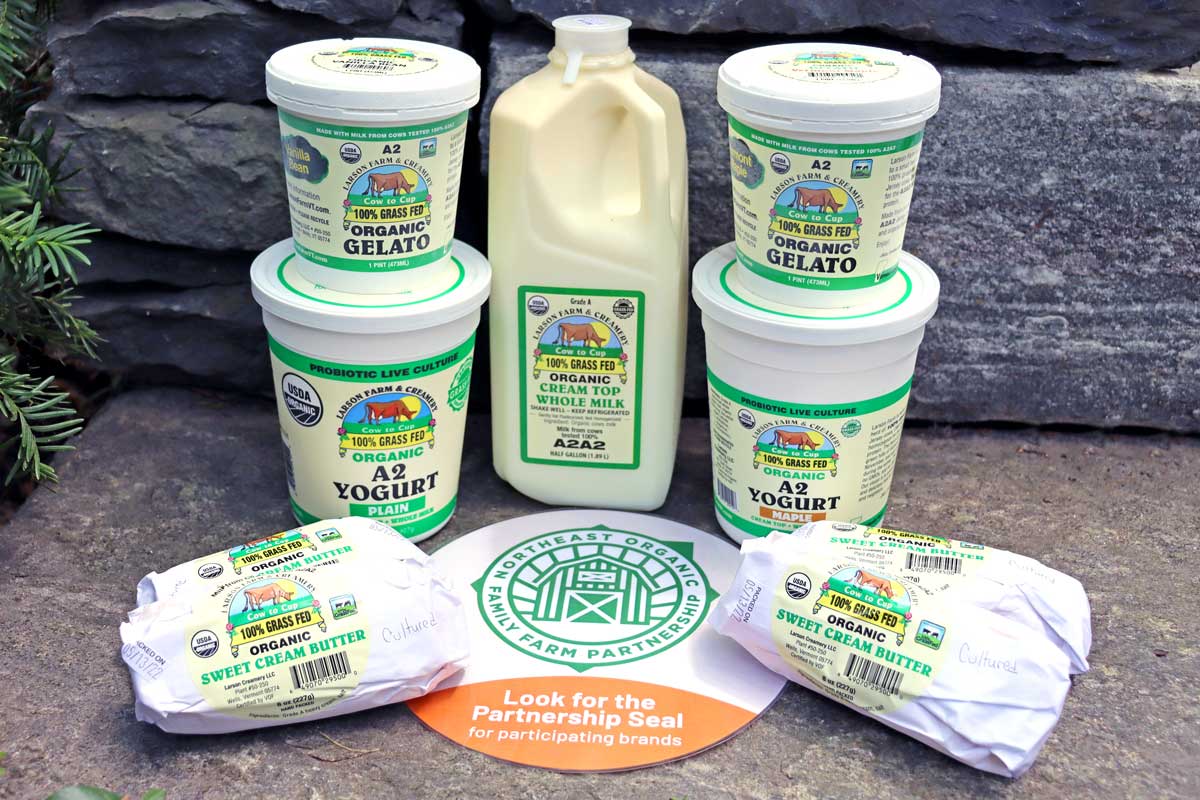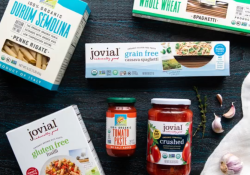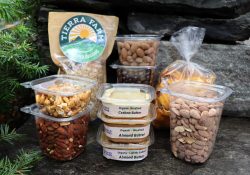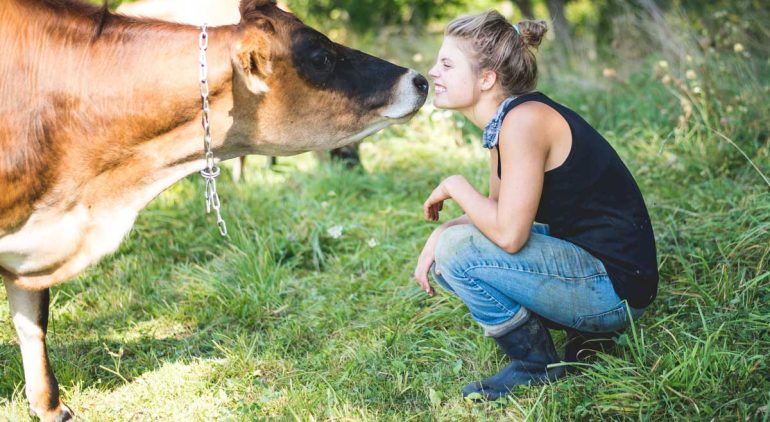
Spotlight on Larson Farm & Creamery
Larson Farm and Creamery is basking in the glow of the Co-op Spotlight this week and all of their local, organic, grass-fed, A2A2 dairy products are 20% for member-owners from July 21st – 27th! Read on to learn more about the history of this family farm and their deep commitment to ecological stewardship:
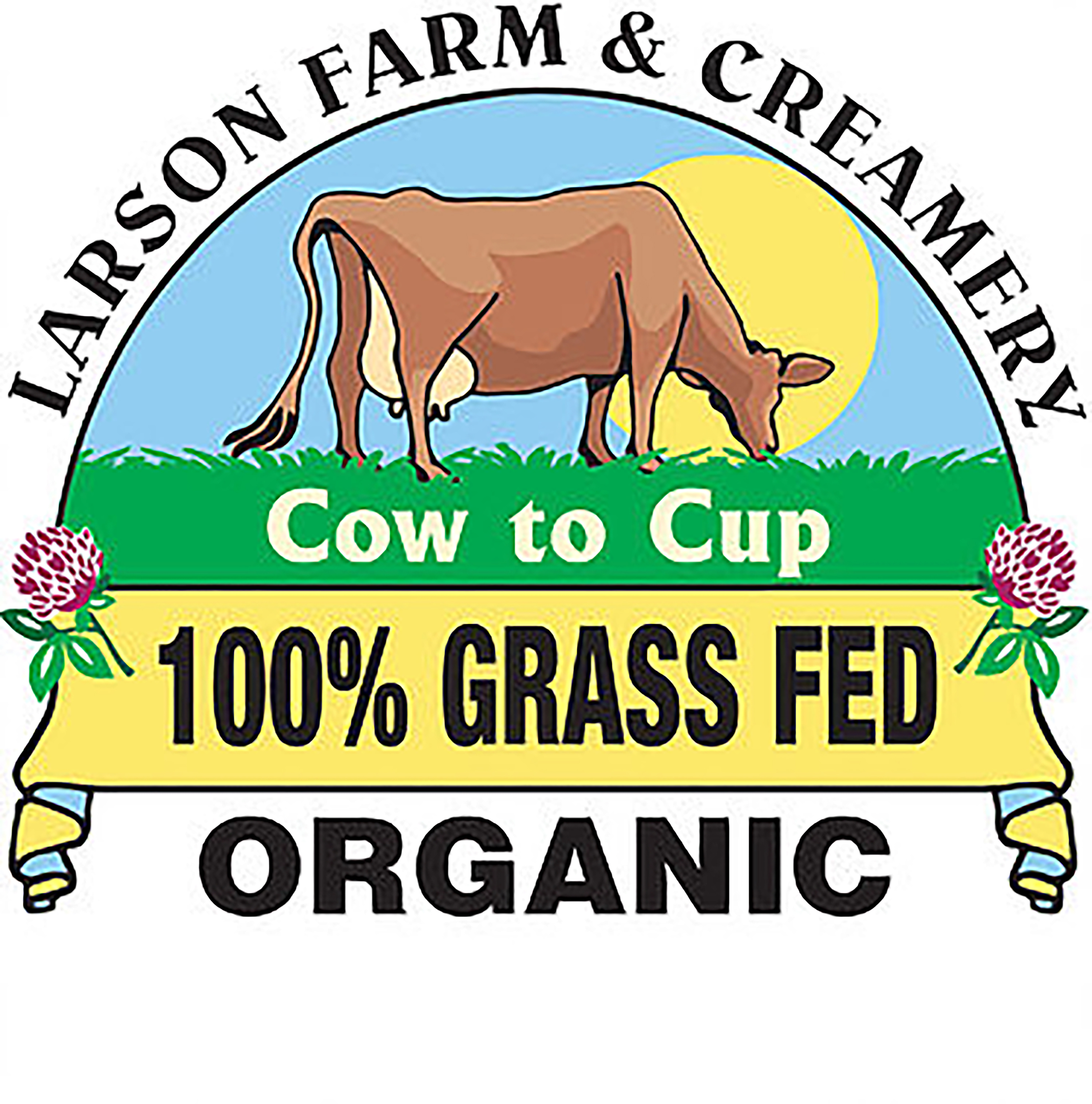
History
Rich and Cynthia Larson first began dairy farming in 1976 on a 300-acre farm they purchased just south of the small town of Wells, VT. They began as conventional farmers with a grain-fed milking herd that peaked at 150 cows. Due to a combination of factors including falling milk prices and shrinking profit margins, their conventional dairy folded in 1993. Armed with a passion for environmental stewardship and a desire to do things differently, Rich and Cynthia regrouped and relaunched their dairy farm in 2007. This time around, they opted for a smaller herd, invested in soil improvement, became USDA-certified Organic, 100% Grass-fed certified, and focused on producing high-quality raw milk.
In true family-farm fashion, Rich and Cynthia have a lot of help from family members to keep the farm running smoothly. Their daughter Mercy manages the dairy herd. Cynthia and niece Kristin manage the horse retirement boarding and pony breeding program, and sister-in-law Lee is the creamery manager.
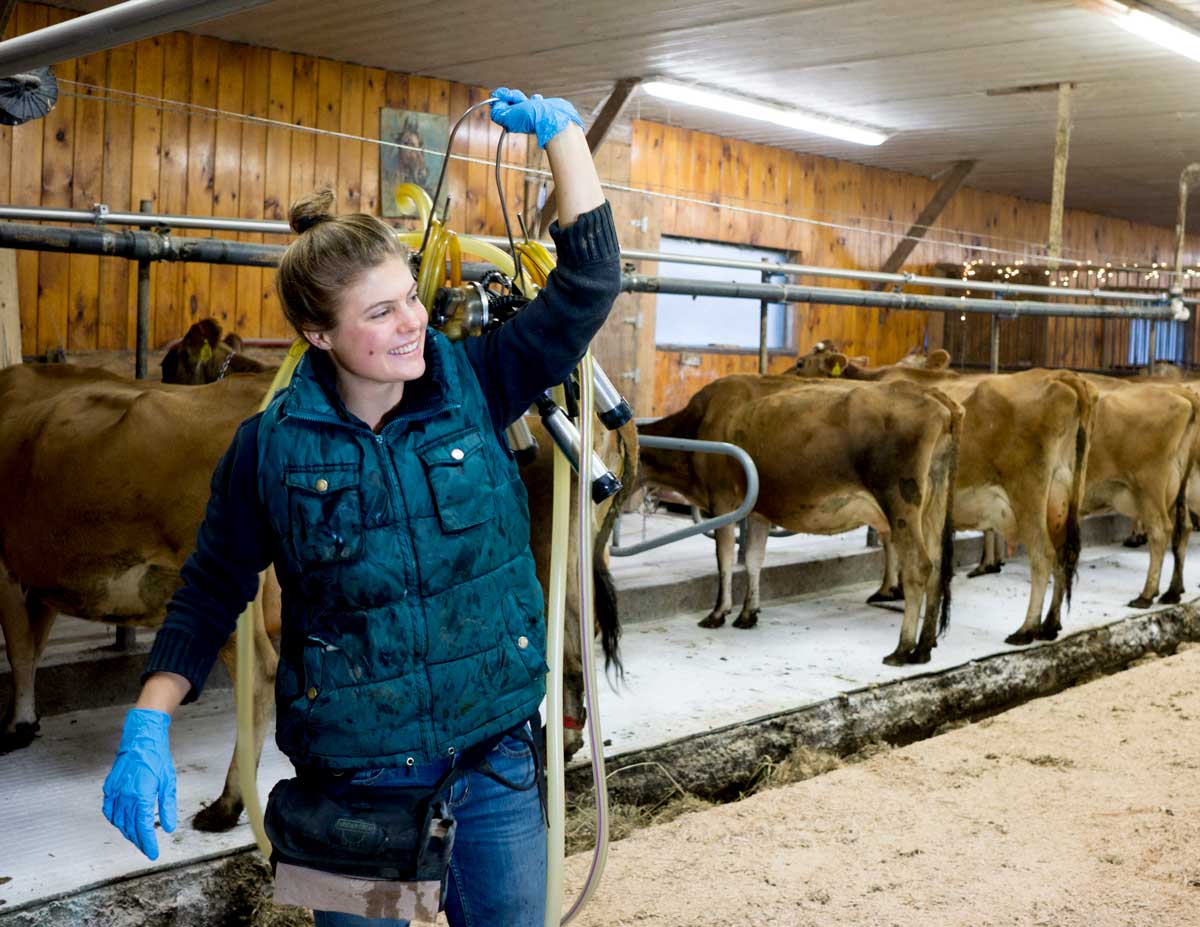
Ecological Stewardship
According to their website, “At Larson Farm, we share a vision of healthy communities, healthy people, and a sustainable food system built on good stewardship of our natural resources. The land, cattle, and dairy products are certified organic. The cattle are certified 100% grass-fed, and our dairy cows are 100% A2A2. Healthy soils mean healthy cattle who produce nutrient-rich foods free of artificial chemicals and pesticides. Our vision is to provide fresh nutritious dairy products to local and regional markets while being good stewards of the land and caring for our sweet Jersey dairy cows.”
The Larsons built their new organic dairy farm on the firm belief that all life depends on the health of the soil since healthy soils high in organic matter resist drought and produce plants with high levels of nutrition. And this is just what their grazing Jersey cows need to stay healthy and produce nutrient-dense milk. They also built their new venture upon the understanding that cows are ruminants that did not evolve to eat grain. At Larson Farm, the cows are on fresh pasture from May 1 through early November, at which time they are fed a diet of dry hay or fermented hay (silage). They always have access to fresh water, salt, a vitamin/mineral supplement, kelp, and clay. Their grain-free diet results in milk with a high level of CLAs and Omega-3 fatty acids, both beneficial to human nutrition.
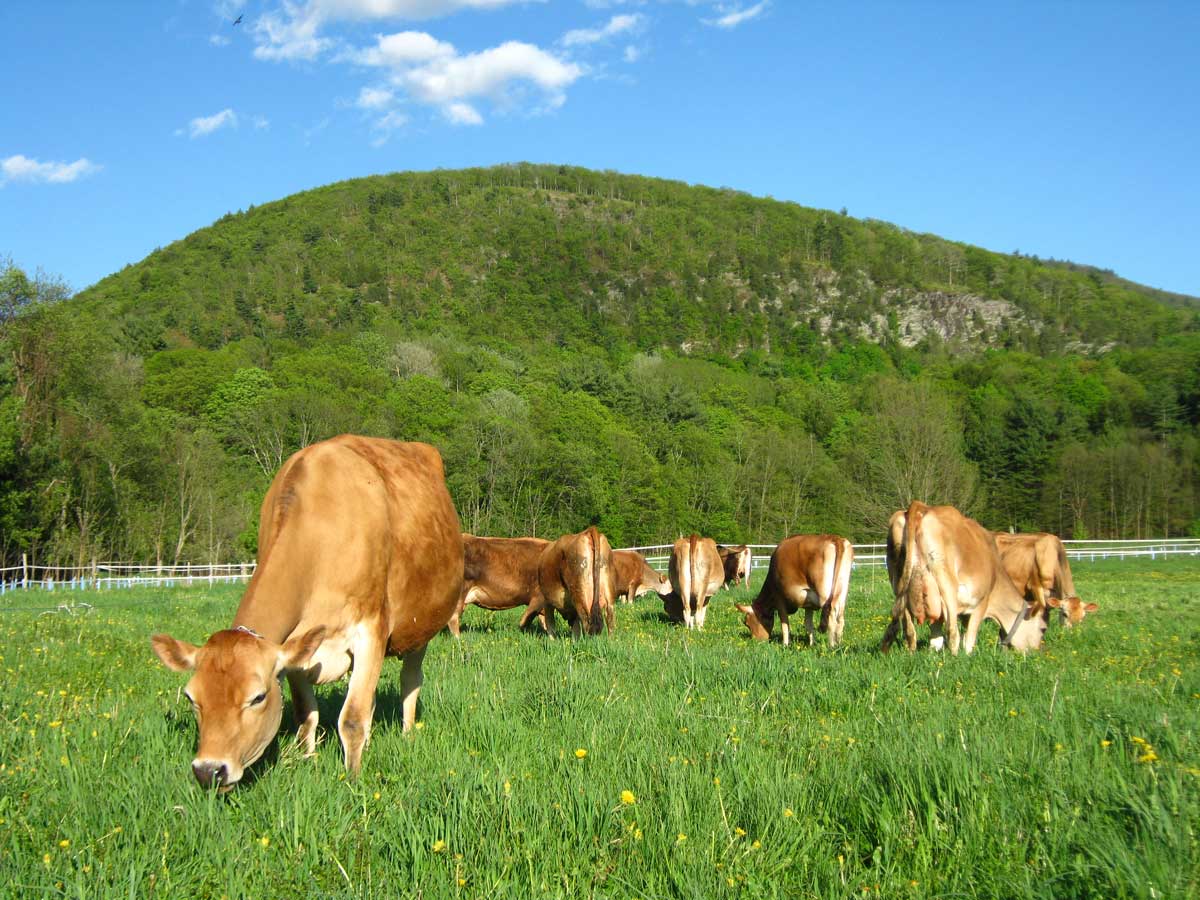
Raising cows on pasture in a manner that builds deep rich soil, retains water, reduces erosion, and sequesters carbon is a critical part of the farming practice at Larson Farm and Creamery. According to Rich and Cynthia, “the cows are given access to a small area (a paddock) where they stay for 3-6 hours. The paddocks are sized to allow the cows to eat the top half of the grass and clover, which is the high-energy portion of the plant. They are then moved to a fresh paddock. What we are doing, on a very small scale, is to mimic what happened on our great plains when the American Bison herds roamed while eating, depositing their thank-you plops, and moving on to clean fresh grass. In so doing, the large herds did not degrade the soil but rather built rich soil high in organic matter.
A2A2 Milk
The Larson’s herd of Jersey dairy cows has been tested to be homozygous (having identical pairs of genes for any given pair of hereditary characteristics) for A2A2 beta-casein. A cow’s genetics determine what kinds of proteins are present in her milk. Humans, goats, and sheep all produce milk that only has A2 protein; cows, on the other hand, experienced a genetic mutation thousands of years ago that made some cows produce an A1 protein in their milk. Studies conducted by the National Institutes of Health demonstrate that consumption of milk containing A1 proteins results in an increase in inflammation, gastrointestinal discomfort, and other signs of dairy intolerance in many individuals. These inflammatory markers and adverse gastrointestinal effects are no longer present when individuals consume milk containing A2A2 proteins, indicating that what many presume to be lactose intolerance might actually be the result of A1 protein in the milk. Additional studies have linked A1 milk protein to other health problems such as type 1 diabetes, heart disease, autism, and other serious non-communicable diseases. Click here to learn more.

Direct from their farm stand, Larson Farm and Creamery offers raw milk, with all its rich enzymes and natural beneficial bacteria, plus grass-fed beef. They also produce a line of pasteurized products, including certified organic and grass-fed A2A2 yogurt, cream-top milk, gelato, and cultured butter, which you can find at their farm stand or here at the Co-op!
